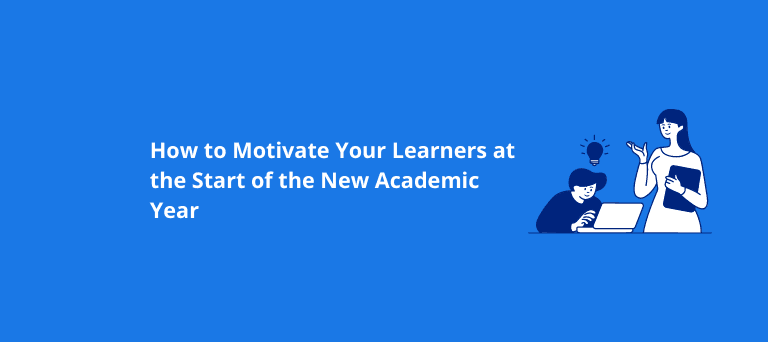Leigh · Supply Teacher
25 Aug 2019
3
min read

From my experience, when pupils return from the summer holiday they are either unhappy about being back at school or excited for the novelty which the new year brings. It is therefore essential to capitalise on this excitement and to motivate those who are reluctant to return to their studies.
As a supply teacher, most of the time you do not have the luxury of planning lessons -- a key factor in motivating your learners -- so you need to work around the lesson plans left for you by the class teacher.
How can you maximise the potential of this learning material?
It starts with your demeanour in the classroom. I believe that children match or respond to the energy of the teacher. It is especially important at the beginning of a new school year (like having New Year’s Resolutions) to start on a good foot. Go into the classroom with an approachable, motivated and no-nonsense approach to your teaching and pupils. To achieve this, keep your personal problems out of the classroom by being optimistic and motivate yourself by watching teacher TED talks and reading articles about successful teachers, such as recipients of international teaching awards.
I like to watch videos of pupils and teachers at very challenging schools as this can (1) put your dark moments as a teacher into perspective and (2) motivate you to do your utmost to change the lives of your learners in a positive way. To motivate your learners, model the correct behaviour and your own learning; for instance, be respectful of all people no matter their position in society and develop your own skills by taking a course or two. Connect with your learners or meet them at their level in terms of their interests and lives and relate your teaching to these interests in order to forge a connection or develop rapport with your pupils in a short space of time.
"Show your pupils that learning is about more than academics and marks."
It can be beneficial to humanise yourself by sharing aspects of your own background, interests and experiences and link these to those of the learners. Do not be afraid to share your personal stories of success, as children often think teachers or adults do not cry or have tough times. Show your pupils that learning is about more than academics and marks. Show them the impact that education has had in the lives of famous and non-famous people as a means of making youngsters value their education and believe in themselves and their dreams.
Supply teaching is all about delivering engaging lessons on the spot via quick thinking. Ask yourself, what can I add to this lesson from my repertoire of skills and methods to ‘jazz it up?’. This might include sports, music, drama or visual art. Children learn best and are motivated when they are enjoying what they are doing. It is also important to praise and reward them when they have earned it.
Set realistic goals but also challenge your learners when appropriate. Do not be afraid to try new teaching methods if you find that one does not work and, when possible, use some of your own material, such as storybooks for Early Years pupils.
Finally, remember that every person you meet in life - no matter how young or naughty - has something to teach you about yourself, for better or worse. So embrace the mission you have been called to and don your superhero cape.




